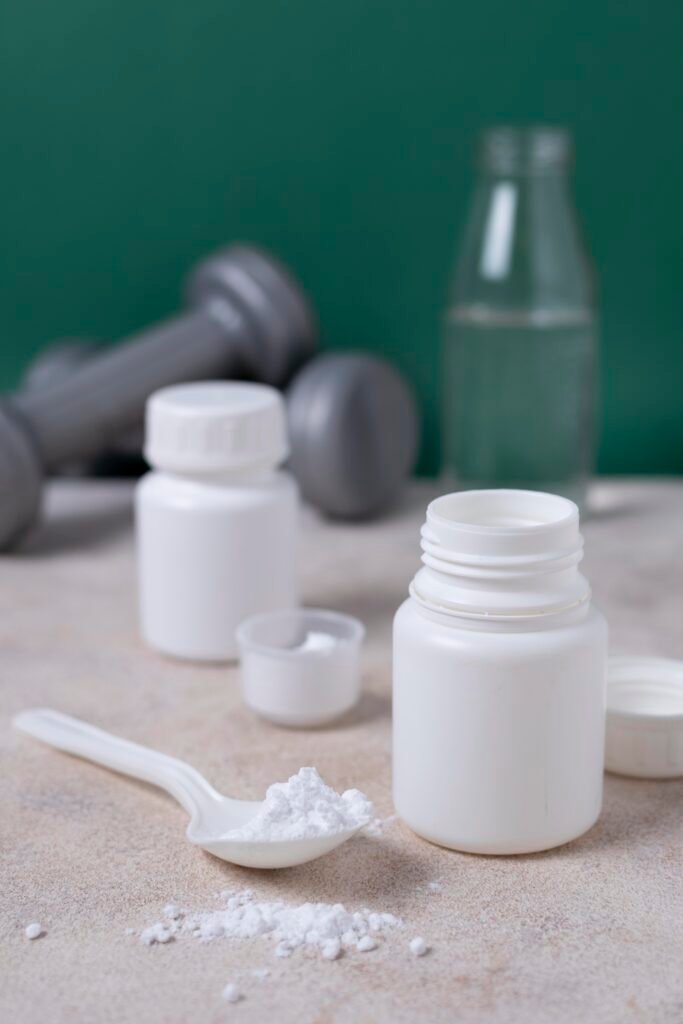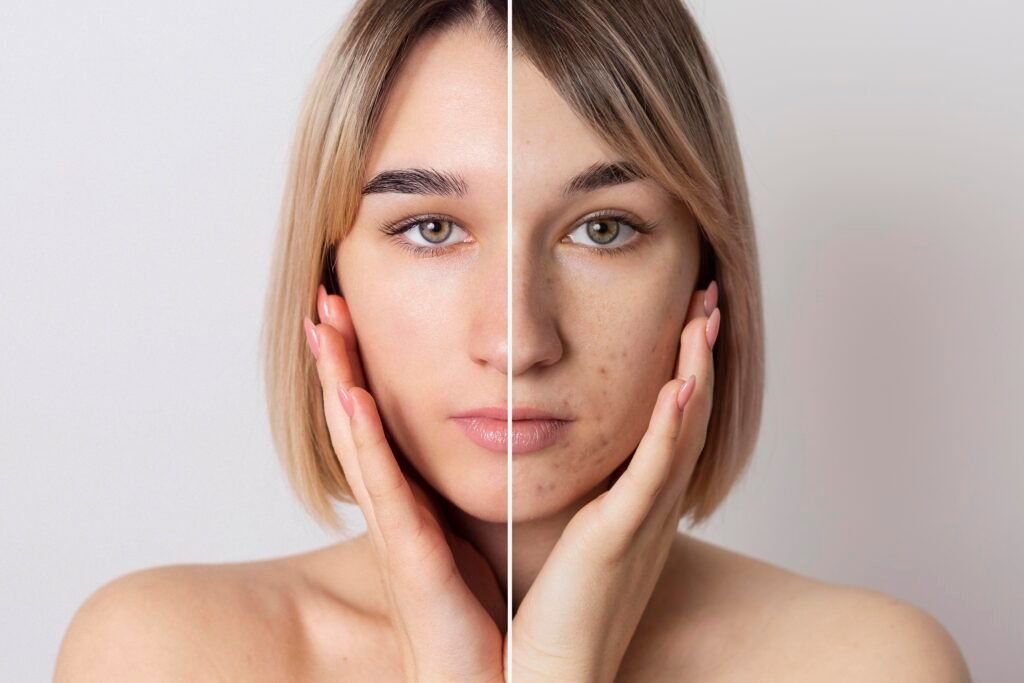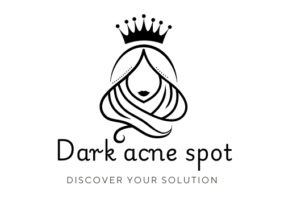
1: Creatine Cause Acne?
In fitness and bodybuilding, creatine is one of the most popular and well-researched dietary supplements. Renowned for its potential to reinforce excessive-intensity athletic overall performance and muscle tissues, creatine has become a staple in the routine of many fitness enthusiasts. However, among its celebrated blessings, concerns about the ability link between creatine supplementation and pimples have emerged, sparking debate and concern amongst users. This put up will explore this debate, providing a comprehensive look at creatine, its results on the frame, and its alleged relationship with pimples, armed with scientific insights and real-existence studies.
Table of Contents
What is Creatine?
Creatine is a compound that occurs in small amounts in positive meals and is synthesized in our bodies. It performs an important function in energy manufacturing, particularly through quick bursts of excessive-intensity exercise. Supplementation with creatine has been proven to increase the creatine content material in muscular tissues by up to 40%, enhancing energy, anaerobic staying power, and muscle recuperation. Given these benefits, creatine is considered an essential supplement within the health community.
The Acne and Creatine Debate
The question of whether or not creatine reasons acne has come to be a warm subject matter. Some argue that creatine supplementation has caused acne breakouts or intensified present zit situations. These assertions are regularly grounded in personal anecdotes and a handful of studies that suggest a capability connection. However, is there a systematic foundation for these claims?
Understanding Acne

To decipher the potential hyperlink between creatine and zits, it is important to first understand pimples. Acne is a pores and skin circumstance characterized by acne, blackheads, and cysts, ordinarily because of the clogging of hair follicles with oil and lifeless pores and skin cells. Hormone fluctuations, genetics, and infection play huge roles in the improvement of pimples.
The Link Between Creatine and Acne
One proposed mechanism through which creatine may contribute to pimples is its effect on hormone levels, especially dihydrotestosterone (DHT) and testosterone. Creatine can also increase the conversion of testosterone to DHT, a more potent androgen that can intensify acne by increasing oil production inside the skin. In addition, creatine’s function in altering insulin-like boom component (IGF-1) ranges could affect zits, as extended IGF-1 stages were related to pimple improvement. However, it is vital to evaluate these hypotheses with studies that have found no direct correlation between creatine supplementation and the occurrence of multiplied pimples. Research in this area remains limited, and much of the evidence supporting the creatine-acne hyperlink is anecdotal.
Real-Life Experiences
Many people within the fitness community have shared their reports with creatine, with some noting a growth in acne breakouts following supplementation. In contrast, others reported no change in their skin conditions. These varied experiences advocate that the effects of creatine on acne can be exceedingly individualized and motivated by factors such as genetics, present hormone tiers, and skin type.
Recommendations and Best Practices
For those concerned about potential acne flare-ups when using creatine, the following are some recommendations:
- Monitor Your Skin’s Response: Start with a lower dose of creatine and observe how your skin reacts over a few weeks.
- Maintain Proper Hydration: Creatine increases the need for water; staying hydrated can help mitigate potential skin issues.
- Adopt a Skincare Routine: Implement a skincare regimen suited to your skin type, focusing on gentle cleansing and non-comedogenic products.
FAQs
Is there a definitive answer to whether creatine causes acne?
There is no scientific consensus. The relationship between creatine and zits appears to differ among individuals. Personal experimentation and observation can be vital to determine how your body responds to creatine.
Can I still use creatine if I have acne-prone skin?
If you have concerns about pimples, it is important to seek advice from a healthcare professional before beginning any supplement. They can propose a first-class route of action for your precise situation.
Should I stop taking creatine if I notice more acne?
If you believe creatine is worsening your acne, consider reducing your dosage or discontinuing use to see if there is an improvement in your skin condition.
Conclusion
In the realm of fitness and health, the discussion surrounding creatine and acne underscores the broader imperative of understanding how supplements can uniquely affect our bodies. While current evidence does not conclusively link creatine with the onset or aggravation of acne.
For fitness enthusiasts navigating the complexities of body optimization and skin care, the key lies in striking a balance informed by scientific research and personal health considerations. Whether or not you incorporate creatine into your regimen, staying informed and attentive to your body’s responses will guide you toward making the best decisions for your health and fitness goals.
We invite you to share your experiences with creatine and acne in the comments section below. Together, we can build a more nuanced understanding of this issue, empowering each other with the knowledge to make informed choices about our health and fitness journeys.
